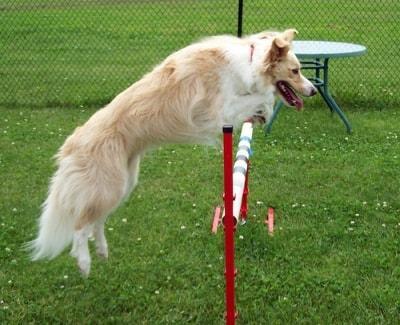The short answer to the question "are cats intelligent" is yes.
Of course, that's probably not really a surprise to you if you own a cat. You, more than anyone, can probably see that your cat has a pretty active mind. Sometimes, it might seem like they're using their intelligence just to drive you crazy.

Believe me, I've been there. My cat Sokka is, in my opinion, extremely smart, and sometimes he'll use that power for evil.
I know what you're thinking. Everyone thinks their pet is smart, right?
I'm just one person out of many on the internet who's saying "Look! My cat's great? Isn't he great?" I swear, though - he's got a pretty good head on his shoulders, even if he doesn't listen to me all the time.
Some examples about question "Are Cats Intelligent"

By sticking his paw under them, he can open closet doors. He also knows that doorknobs are what open doors, and will stand on his hind legs and jiggle the knob with his paws if I shut him out.
Sometimes, if I'm not paying attention to him, he'll start scratching my couch, because he knows it gets a reaction from me. I'm serious. In normal circumstances, he uses his scratching post just fine, but when I'm on my computer instead of playing with him? Unacceptable. It's couch shredding time, until I scold him. I've also found that he definitely recognizes his name no matter what tone of voice I say it in, and that he knows the word catnip.
Okay, I'll stop now. Enough about my own cat. What's the point of me bringing all this up?
Well, we might know our cats are smart animals, and we might have examples of behavior to prove it. Finding out scientifically just how smart they are, though, is much more difficult.
Why?
Because cats are extremely hard to study in a laboratory setting. Most of the time, they don't want to please people by completing simple tasks. They'll do what they want to do, and ignore whatever they're "supposed" to do.
Another issue with studying cats is that if they're in an unfamiliar or frightening environment, such as a lab, they may be uneasy and disinterested in the experiment. Some cats, unlike (most) dogs, dislike being in new places they haven't been before, until they become familiar with the area. Cats do, after all, have a set territory that they mark as theirs-their home. If someone moved you from your home abruptly and asked you to complete tasks for them in a new, confusing place, would you be happy? Probably not, right? Studies that have worked with cats in their own homes, where they're more comfortable, have proven to be a little more effective, but the results are still not that much to go on.
What about in relation to dogs? Which pet is smarter?

I guess it depends on how you define "smarter," but it's pretty unfair to compare a cat's intelligence to a dog's, because cats and dogs are different animals with different preferences and behaviors. Because dogs are pack animals, they want to please the alpha "dog", their master. So if you ask them to do something, they'll usually comply with your command eagerly. Cats, more solitary animals, will probably be more interested in exploring a maze and making sure it's a safe environment for them than trying to find the exit for you.
Because of these obstacles, there have been very few studies on the cat brain that have produced any significant results. But let's say you still want to test the intelligence of your cat.
How would you do that?
Fortunately for you, there are simple exercises that can show you (in comparison to human standards) how smart your cat potentially is.

First, try and see if they understand object permanence. To do this, show your cat a toy or treat, and then hide it behind or under something, like a piece of paper or a box. If your cat figures out where the object is hidden, they know that it didn't just disappear into thin air. By our standards, that makes them as smart as an 18-month-old baby. In fact, it's been reported by cat behavior specialists that most cats have the intelligence of a 2- to 3-year-old human. This might not seem like it's very smart to us, but we have to consider that they aren't people, and also haven't really been studied much. We probably have much more to learn about how smart cats really are!
Another way to assess your cat's intelligence is by placing a container of unopened food near their bowl. If you have a smart cat (and they're paying attention to what's going on!), they'll probably look back and forth from the container to you, waiting for you to open it. This shows that they know the container is their source of food, and you are able to access it for them. If they sniff the container and leave to do something else, their intelligence (compared to other cats) might not be as high. Of course, this could also mean they aren't interested in food at the moment!
Other small things you can observe are your cat's adaptability to their environment and their dexterity. If your cat can switch from relaxing to " hunting " a toy relatively quickly, this means that they're observant, in tune with their environment, and more likely to "survive." That's a quality cats in the wild need, so it's smart by their standards! Paw dexterity is important too. Watch how your cat uses his or her paws. If they're good at performing tasks with them (like Sokka when he opens my closet door at 3 AM!), you've got yourself a clever kitty.
I guess the take home message of this article is that with both humans and cats, you can't always base intelligence on studies and a few little home tests. Like I said before, if you're a cat owner, you've probably seen how smart your pet can be. That's why when Sokka scratches up my couch to get me to pay attention to him, I may be annoyed, but I can't help but smile a little. Yep, I've got myself a clever little pain-in-the-butt.

